10 Best Herbal Decoctions For Depression

Herbal decoctions have been traditionally used to support mental health and alleviate symptoms of depression by promoting relaxation and emotional balance.
Common herbs such as St. John’s Wort, lavender, and valerian root are often included in these formulations due to their calming and mood-enhancing properties. These decoctions are typically prepared by simmering the dried herbs in water for an extended period, allowing the active compounds to be extracted into the liquid. While some studies suggest they may be effective for mild to moderate depression, they should not replace professional medical treatment.
It is important to consult a healthcare provider before using herbal decoctions, as they can interact with medications and have varying effects on different individuals.
Table of Contents
- 1. St. john's wort (Hypericum perforatum)
- 2. Valerian (Valeriana officinalis)
- 3. Maypop (Passiflora incarnata)
- 4. Licorice (Glycyrrhiza glabra)
- 5. Echinacea (Echinacea purpurea)
- 6. Black cumin (Nigella sativa)
- 7. Yarrow (Achillea millefolium)
- 8. Heartworts (Leonurus cardiaca)
- 9. Blessed thistle (Cnicus benedictus)
- 10. Maca (Lepidium meyenii)
1. St. john's wort (Hypericum perforatum)

Hypericum perforatum, commonly known as St. John's Wort, has been widely used for centuries in herbal medicine to treat mild to moderate depression.
Its active compounds, such as hypericin and hyperforin, are believed to influence neurotransmitter levels in the brain, including serotonin, dopamine, and norepinephrine. Herbal decoctions of St. John's Wort are typically prepared by simmering the dried plant material in water, resulting in a potent infusion that can be consumed as a tea. These decoctions are often preferred for their natural composition and fewer side effects compared to synthetic antidepressants.
However, they may interact with other medications, so it is important to consult a healthcare provider before use.
2. Valerian (Valeriana officinalis)
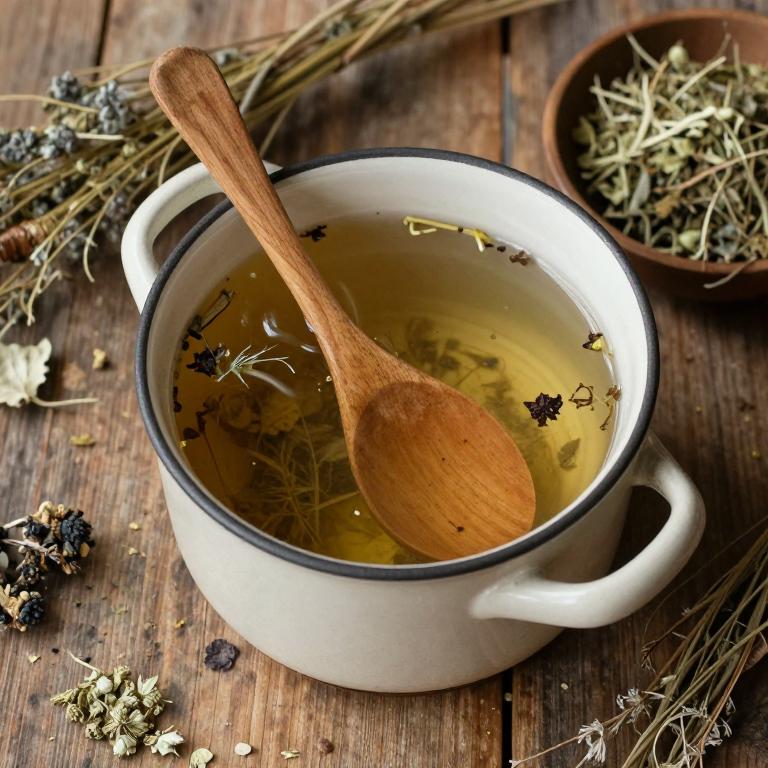
Valeriana officinalis, commonly known as valerian, is a traditional herbal remedy that has been used for centuries to address various health conditions, including depression.
Its roots contain bioactive compounds such as valerenic acid and sesquiterpenes, which are believed to influence the central nervous system and potentially enhance mood regulation. Recent studies suggest that valerian root may help alleviate symptoms of mild to moderate depression by modulating neurotransmitter activity, particularly GABA, which plays a key role in reducing anxiety and promoting relaxation. While more research is needed to fully understand its efficacy, valerian decoctions are often used as a complementary therapy in holistic approaches to mental health.
As with any herbal remedy, it is important to consult with a healthcare professional before incorporating valerian into a treatment plan for depression.
3. Maypop (Passiflora incarnata)
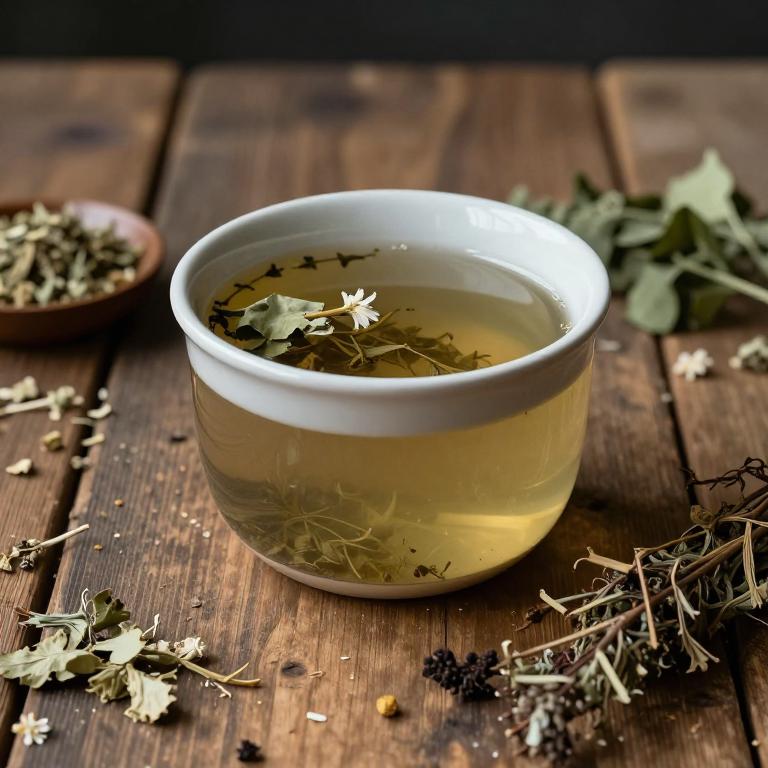
Passiflora incarnata, commonly known as passionflower, has been traditionally used for its calming properties and is increasingly studied for its potential role in treating depression.
Herbal decoctions made from the dried leaves and flowers of Passiflora incarnata are believed to enhance mood by increasing levels of neurotransmitters such as GABA, which helps reduce anxiety and promote relaxation. Research suggests that these decoctions may offer a natural alternative or complementary therapy for individuals experiencing mild to moderate depressive symptoms. The preparation typically involves simmering the plant material in water for several hours to extract its active compounds.
While more clinical studies are needed, preliminary evidence indicates that passionflower decoctions may support emotional well-being and alleviate symptoms of depression when used as part of a holistic treatment plan.
4. Licorice (Glycyrrhiza glabra)

Glycyrrhiza glabra, commonly known as licorice, has been traditionally used in herbal medicine for its potential antidepressant properties.
Herbal decoctions made from the root of Glycyrrhiza glabra are believed to support mental health by modulating neurotransmitter activity and reducing stress-related symptoms. Studies suggest that the active compounds in licorice, such as glycyrrhizin and flavonoids, may enhance mood regulation and alleviate symptoms of depression. However, prolonged use of licorice decoctions can lead to side effects like hypertension due to its mineralocorticoid-like effects.
As a result, it is often recommended to use licorice in combination with other herbs and under the guidance of a qualified herbalist or healthcare provider.
5. Echinacea (Echinacea purpurea)

Echinacea purpurea, commonly known as purple coneflower, is a traditional herbal remedy that has been explored for its potential benefits in treating depression.
While primarily used to support immune function, recent studies suggest that its bioactive compounds, such as alkamides and flavonoids, may have antidepressant effects by influencing neurotransmitter activity and reducing inflammation. Herbal decoctions made from Echinacea purpurea are often prepared by boiling the dried root or leaves in water, making them a popular form of traditional medicine. However, more research is needed to fully understand its efficacy and safety in treating depression compared to conventional antidepressants.
Despite its promising potential, it is important to consult with a healthcare provider before using Echinacea purpurea as a treatment for depression.
6. Black cumin (Nigella sativa)
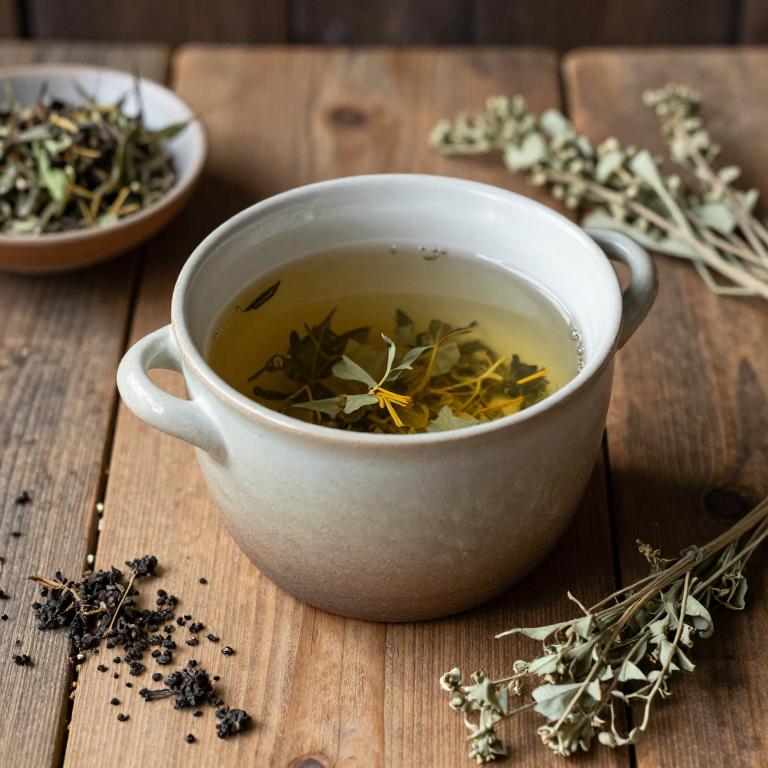
Nigella sativa, commonly known as black cumin, has been traditionally used in herbal medicine for its potential antidepressant effects.
Studies suggest that the active compound thymoquinone in Nigella sativa may influence neurotransmitter levels and reduce oxidative stress, both of which are linked to depression. Herbal decoctions made from the seeds are often prepared by boiling them in water and consuming the resulting infusion, which is believed to promote mental well-being. While preliminary research shows promise, more clinical trials are needed to confirm its efficacy and safety for treating depression.
As an alternative or complementary therapy, Nigella sativa decoctions may offer a natural option for individuals seeking holistic approaches to managing depressive symptoms.
7. Yarrow (Achillea millefolium)

Achillea millefolium, commonly known as yarrow, has been traditionally used in herbal medicine for its potential antidepressant properties.
Herbal decoctions of yarrow are prepared by boiling the dried leaves and flowers in water, allowing the active compounds to be extracted. These decoctions are believed to support emotional balance by promoting relaxation and reducing anxiety symptoms. Studies suggest that compounds such as flavonoids and sesquiterpene lactones in yarrow may influence neurotransmitter activity, contributing to its mood-enhancing effects.
While more research is needed, some individuals use yarrow decoctions as a complementary therapy for mild depressive symptoms under the guidance of a qualified herbalist or healthcare provider.
8. Heartworts (Leonurus cardiaca)
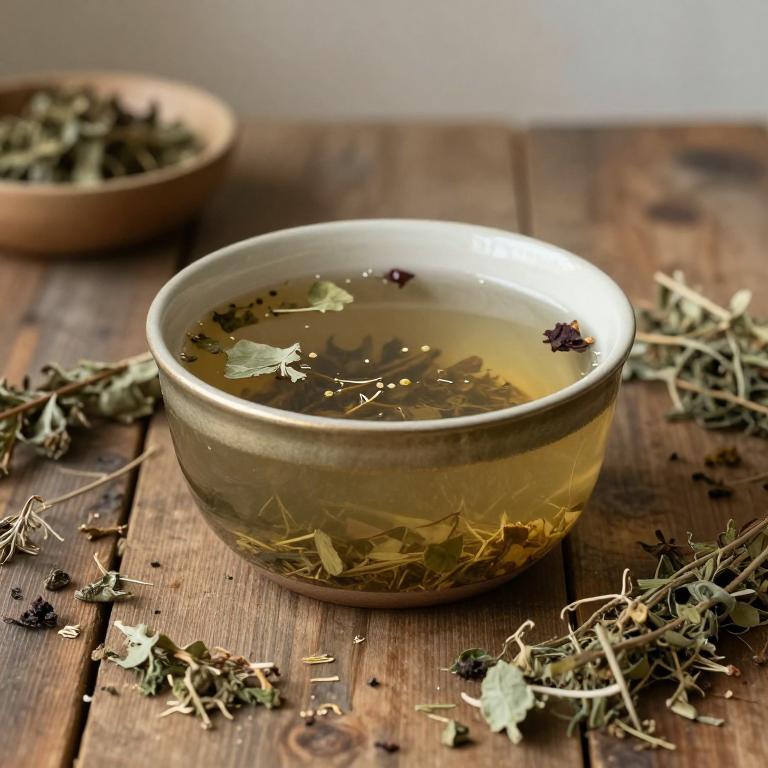
Leonurus cardiaca, commonly known as "motherwort," has been traditionally used in herbal medicine for its calming and sedative effects, making it a potential remedy for depression.
Herbal decoctions of Leonurus cardiaca are prepared by simmering the dried aerial parts of the plant in water, allowing the active compounds to be extracted for consumption. The plant contains compounds such as flavonoids, iridoids, and phenolic acids, which may contribute to its antidepressant properties by modulating neurotransmitter activity and reducing oxidative stress. Studies suggest that Leonurus cardiaca may help alleviate symptoms of mild to moderate depression by promoting relaxation and improving mood.
However, while preliminary research is promising, more clinical trials are needed to fully establish its efficacy and safety for treating depression.
9. Blessed thistle (Cnicus benedictus)

Cnicus benedictus, also known as blessed thistle, has been traditionally used in herbal medicine for its potential antidepressant effects.
Herbal decoctions of Cnicus benedictus are prepared by simmering the dried leaves and stems in water, allowing the active compounds to infuse into the liquid. These decoctions are believed to support mood regulation by enhancing liver function and promoting detoxification, which can indirectly alleviate depressive symptoms. The herb is often combined with other adaptogenic herbs in formulations aimed at reducing stress and improving emotional resilience.
While more research is needed, some preliminary studies suggest that Cnicus benedictus may offer a natural complement to conventional treatments for depression.
10. Maca (Lepidium meyenii)
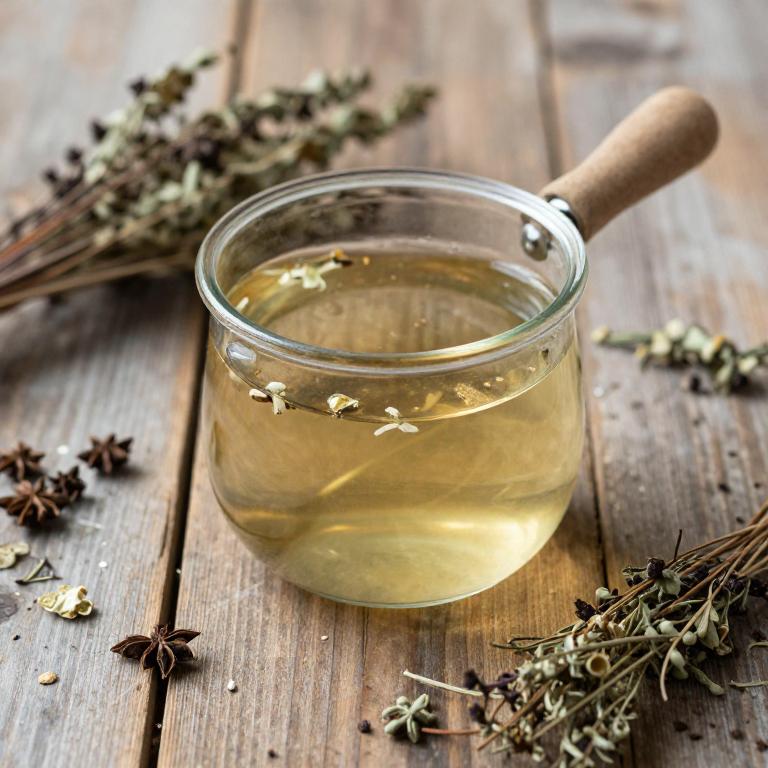
Lepidium meyenii, commonly known as quinoa, has been traditionally used in various cultures for its nutritional and medicinal properties.
While quinoa itself is not typically classified as an herbal decoction, some traditional practices have explored its use in herbal preparations for mental health support. Research suggests that the bioactive compounds in quinoa, such as flavonoids and phenolic acids, may contribute to its potential antidepressant effects. These compounds are believed to influence neurotransmitter activity and reduce oxidative stress, which are factors associated with depression.
Although more scientific studies are needed, preliminary evidence indicates that incorporating quinoa into herbal decoctions may offer a natural approach to managing depressive symptoms.